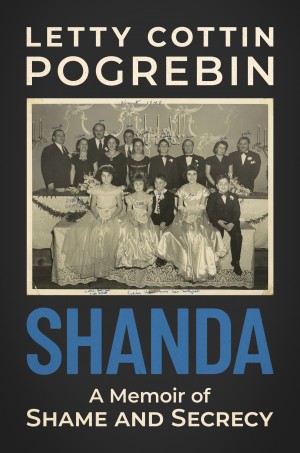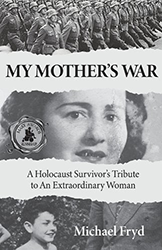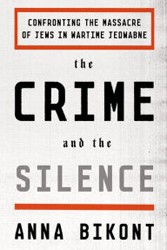As we watch another war transpire in eastern Europe, Michael Fox’s memoir reminds readers of the long reverberations of international geopolitics on nation-states and families. Unfolding over twenty chapters, Becoming Ordinary traces one Jewish family’s displacement in the middle of the twentieth century.
Young Michael feels constant discomfort as his family travels from Łódź to Paris to Pittsburgh and then to New York City. This unease emanates not only from the geographic dislocations but also from the linguistic challenge of being a Yiddish-speaker living in cities that each require a new tongue. Fox is the son of Chaim Leib Fox, a Yiddish poet, writer, and journalist (though the story of Chaim Leib is disappointingly a minor one in Becoming Ordinary). The memoir is peppered with Yiddish (helpfully coupled with English translations) a stylistic choice that reflects Michael’s consciousness — and many of his struggles. His quest is to “becom[e] ordinary,” assimilated as an American.
Some of the most delightful stories in Becoming Ordinary are about different religious educational encounters that Michael and his brothers have at various yeshivas. In Pittsburgh, aided in resettlement by the Hebrew Immigrant Aid Society (HIAS), the boys all enroll in a yeshiva after a visit from Lazar, a Lubavitcher, who young Michael remembers: “Under his yarmulke he had red hair, and he had red payos behind his ears. A scraggly tuft of red beard covered his chin. He was thin and intense.” The boys’ religious education resumes under Lazar’s direction, though Michael struggles with Hebrew and feels the secular education at the yeshiva lags behind that at the public school. Later, after Lubavitch summer camp, Michael meets the Lubavitcher Rebbe himself. While Michael hopes for a transformative experience, ultimately, “his face was inscrutable to me as he looked out at us, not kindly as I heard it was, and he would not be my source of faith and belonging.”
Repeated disappointments with religious studies and religious leaders leave Michael grappling with G‑d and religion in ways that are never resolved. However, Michael does fulfill his desire of assimilating into American society. He and his siblings find a space in the United States for themselves, and through that, they become “ordinary.”
Julie R. Enszer is the author of four poetry collections, including Avowed, and the editor of OutWrite: The Speeches that Shaped LGBTQ Literary Culture, Fire-Rimmed Eden: Selected Poems by Lynn Lonidier, The Complete Works of Pat Parker, and Sister Love: The Letters of Audre Lorde and Pat Parker 1974 – 1989. Enszer edits and publishes Sinister Wisdom, a multicultural lesbian literary and art journal. You can read more of her work at www.JulieREnszer.com.





